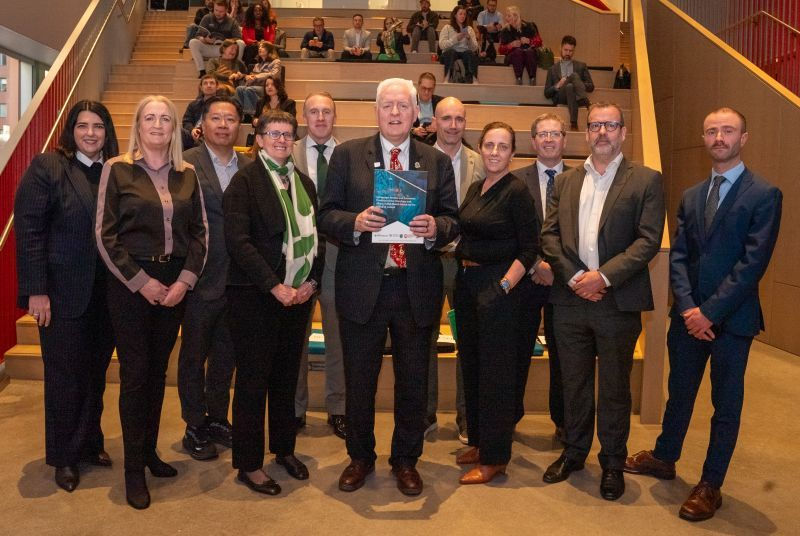Cultural Fit vs. Skill Set: Striking the Right Balance Go backCultural Fit vs. Skill Set: Striking
- Seán Carter

- Aug 14, 2023
- 3 min read
In the dynamic landscape of modern recruitment, the quest to find the perfect candidate is often a delicate balancing act between cultural fit and skill set. Companies worldwide are recognising that a harmonious alignment of values, attitudes, and work ethics can significantly impact team dynamics and overall success. Simultaneously, the need for candidates with the requisite skills to drive innovation and productivity remains paramount. In this blog, we will dive into the intriguing interplay between cultural fit and skill set, exploring how striking the right balance can lead to optimal hiring decisions.
The Significance of Cultural Fit
Cultural fit is no longer just a buzzword; it has become a cornerstone of effective recruitment strategies. A candidate's alignment with a company's culture can directly influence employee engagement, job satisfaction, and even retention rates. When employees feel connected to the organisation's values and mission, they are more likely to stay committed and motivated, ultimately contributing to enhanced productivity.
Moreover, a cohesive team culture fosters effective communication, collaboration, and problem-solving. When individuals share similar working styles and beliefs, they can work harmoniously together, leading to a more positive work environment and decreased conflicts.
Identifying candidates who align with the company's culture involves evaluating their attitudes, behaviours, and motivations. This can be achieved through targeted interview questions, behavioural assessments, and even casual conversations to gauge their values and work ethics.
The Role of Skill Set
While cultural fit is undeniably crucial, a candidate's skill set remains a fundamental factor in their ability to perform the tasks required for a specific role. Skills encompass a candidate's technical proficiencies, industry knowledge, and expertise, all of which are essential for driving innovation, meeting goals, and maintaining a competitive edge.
In certain industries, such as technology or healthcare, possessing the right skill set is non-negotiable. Without the necessary qualifications, a candidate may struggle to adapt to the demands of the role, potentially leading to inefficiencies and missed opportunities.
Striking the Balance
Achieving the perfect equilibrium between cultural fit and skill set can be challenging, but it is essential for long-term success. Here are some strategies to navigate this complex recruitment landscape:
Define Your Company Culture: Start by clearly defining your company's values, mission, and work culture. When you have a comprehensive understanding of what you stand for, you can more effectively identify candidates who resonate with these principles.
Tailored Interview Techniques: Utilise behavioural-based interview questions that assess not only a candidate's skills but also their past experiences and how they align with your company's values. For instance, inquire about situations where they've demonstrated teamwork, adaptability, or leadership.
Collaboration between HR and Hiring Managers: Foster close collaboration between HR professionals and hiring managers. While HR can focus on cultural fit, hiring managers can provide insights into the necessary skill set for the role. Their combined expertise can help in making well-rounded hiring decisions.
On-the-Job Challenges: During the interview process, present candidates with real-world scenarios they might encounter on the job. This approach can help evaluate both their problem-solving skills and their alignment with the company's values in practical situations.
Skill Development Plans: If a candidate possesses a strong cultural fit but lacks certain skills, consider offering skill development plans. These plans can include training sessions, workshops, or mentorship opportunities, allowing the candidate to grow into the role while still contributing positively to the team's dynamics.
In the ongoing debate between cultural fit and skill set, it's important to recognise that both elements play integral roles in the recruitment process. A candidate who embodies the company's culture while possessing the necessary skills can prove to be a valuable asset, driving innovation and collaboration while maintaining a positive work environment.
Cranmore Executive Search understands the intricate balance required in today's recruitment landscape. By considering both cultural fit and skill set, they help organisations find candidates who are not only proficient in their roles but also aligned with the company's values. As the business world continues to evolve, striking the right balance between these two aspects will remain a critical factor in building successful and cohesive teams.



Comments